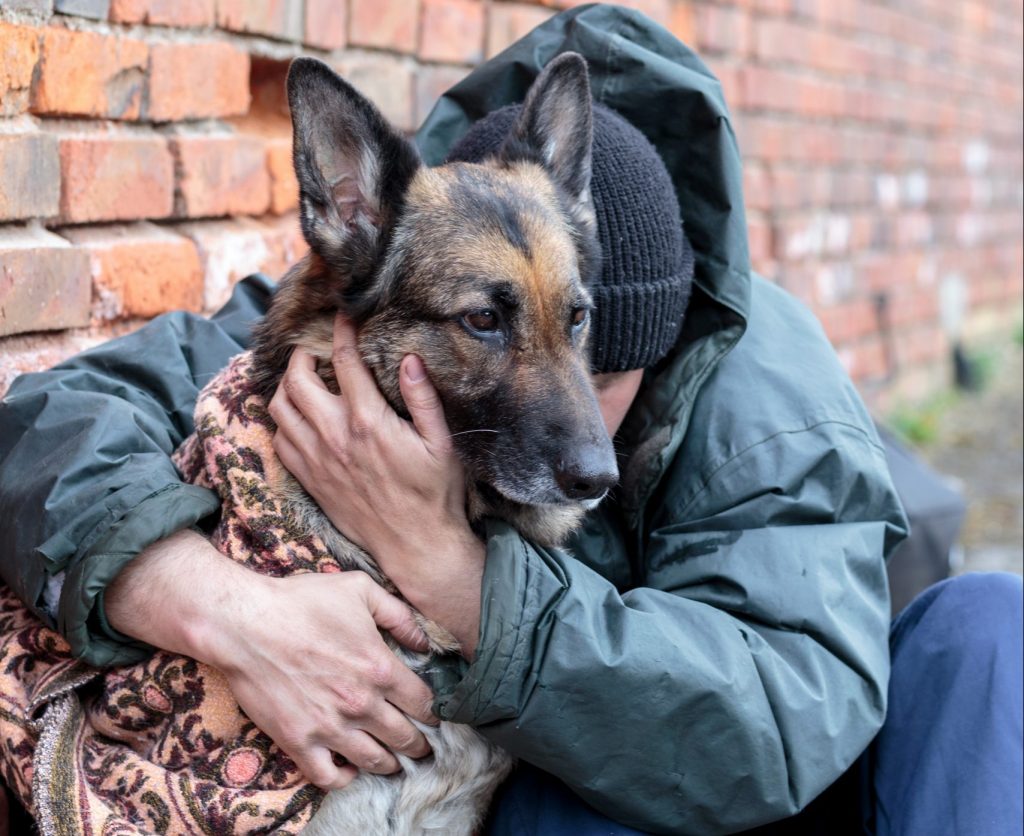Marisa Debattista
CEO/ Founder
Pet owners who are experiencing homelessness deserve our compassion, support,
and our assistance to access resources, not our judgement!
In our line of work, we are not only faced with assisting unwanted companion animals who have no homes, but we also find ourselves addressing the needs of pet owners who are experiencing homelessness themselves.
With an increase in the number of Australians facing financial hardship after the last few difficult years, I fear that we will see a huge increase in people finding themselves on the streets with their pets. Surely the current lack of availability of pet-inclusive housing and the biased rental system that people are navigating whilst trying to rent with a pet is not going to help with this predicament…
Regularly we are confronted with homeless pet owners who are feeding their pet before themselves, need emergency boarding for their pet while they try to access vital services, have a pet who has been taken to the pound and need assistance reclaiming them, and much more. Their pets play a significant role in their lives, and many owners tend to put their pet’s needs before their own – choosing to forgo their own shelter, employment, or health care if it meant that they would be separated from their pet.
For those of us lucky enough to have never had the misfortune of being without a roof over our head, it may be hard to comprehend why people in these situations own a pet in the first place. We hear comments being thrown around: ‘It’s selfish for homeless people to own a pet’ and ‘why don’t they rehome their pet to someone who can offer the animal a stable home’? But these one-sided remarks tend to ignore the fact that owners may have had their pets before losing their homes and ignore the positive impact of the human-animal bond on both homeless people and their pets.


Pets living on the streets with their owners often spend 24 hours a day by each other’s side, creating very strong attachments to each other. For the animal, their person is their entire world, they have been by their side through situations that those of us who have never been homeless could ever understand, providing food, comfort, warmth and love with whatever means they have.
There is lots of data available to show the importance of pet ownership in general, but more so for those who are isolated and socially excluded. Pets can be the one, and sometimes only, source of physical, social, and emotional support for people living on the streets. They provide unconditional love for their people, lower levels of depression and loneliness, and provide security and comfort – basic human needs that are often not met elsewhere. In some cases, pets help their owners keep off drugs and alcohol and give their owners more reason to avoid risky situations because they fear their pet would be taken away from them. And the truth is that people walking by are much more likely to interact, socialise and acknowledge the homeless if they have a pet with them, helping them feel seen again. Our experience reflects the findings of this research, as we see these things with our own eyes on a weekly basis.
A pet can be the one thing that gives them the courage to face each day, be a lifeline and source of strength for someone living rough.
I can say with the utmost confidence that those homeless pet owners who SCAR have assisted absolutely LOVED their pets and would do whatever was needed to ensure that they were happy and healthy… their pet was their family and in many of these cases, their only family.
Our aim at SCAR is to continue building relationships with and improving the well-being of those experiencing homelessness with their pets. Animal companionship is extremely important in people’s lives, and for most homeless pet owners, their pet is the only solace they have. There needs to be increased co-sheltering options available in Australia that allow pets and owners to stay together; effective laws passed that make it easier for people to rent a home with their pets without discrimination, increased government funding allocated to crisis providers to help people in need with the costs of emergency pet boarding arrangements and emergency veterinary care costs.
Addressing pet homelessness IS addressing human homelessness. Breaking the existing bonds in these relationships will NOT solve this PROBLEM, and sadly this issue isn’t going away anytime soon.
